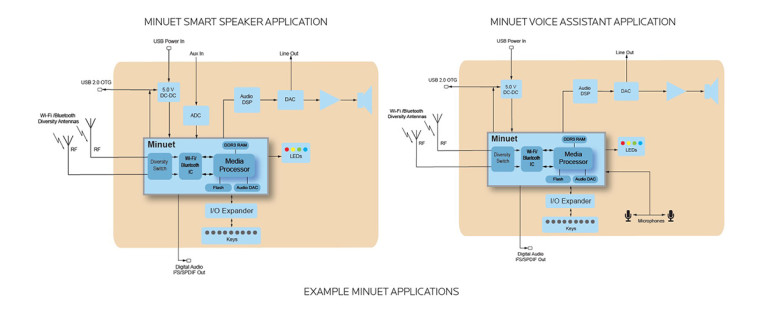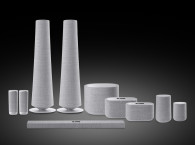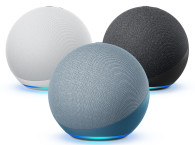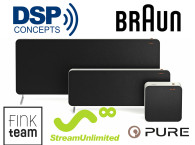
Frontier’s new “WorksWith” reference design is powered by the company’s well-established Minuet Smart Audio module and SmartSDK. This upgrade enables Smart Audio products, without built-in microphones, to be controlled by any voice-enabled device incorporating Google Assistant, Amazon’s Alexa Voice Services, or Apple Siri – giving consumers the freedom to choose their preferred voice ecosystem.
Manufacturers and brands will be able to position their devices as being controllable via any of the major voice assistant ecosystems, launching new products that are able to support “Works with Google Assistant”, “Works with Alexa” and can be voice-controlled via an Apple HomePod. In addition, the platform also supports multiroom applications with Google Chromecast built-in and Apple AirPlay 2.
The first product based on Frontier’s “WorksWith” reference platform comes from TechniSat Digital GmbH, who will be introducing their new all-in-one music system at IFA 2018, in Berlin. TechniSat's DIGITRADIO 581 all-in-one music system supports Works with Google Assistant, Works with Alexa, Works with HomePod, Chromecast built-in, Airplay2, Internet radio, DAB/DAB+, FM radio, CD, and USB playback.
“Voice-enabled devices are transforming the audio marketplace, but not all smart audio products require their own dedicated voice input. With the launch of Frontier’s WorksWith platform, we are enabling digital audio brands to develop products which maintain the highest standards in terms of audio performance – and which are also compatible with all three of the major ecosystem platforms. TechniSat is our launch partner on this project. We expect other brands to follow shortly,” says Prem Rajalingham, Chief Commercial Officer, Frontier Smart Technologies.
As TechniSat's Managing Director, Stefan Kön, explains, "This is our entry into the voice-controlled smart audio market. We have chosen Frontier’s solution because it allows us to develop a class-leading music system, which can be controlled by voice-enabled devices from Google, Amazon or Apple. For us, it is important to be compatible with all the major ecosystems.”
Founded in 1987, TechniSat Digital GmbH is part of Techniropa Holding GmbH, a successful group of German companies manufacturing consumer electronics, tubes and tube accessories, e-mobility solutions, spirits and wooden furniture. TechniSat specializes in high quality satellite reception technology for German-speaking countries and the company has evolved as one of the leading German manufacturers of entertainment electronics products, with TVs, digital radios, smart home and other lifestyle electronics. TechniSat develops in the company's own research and development center in Dresden and manufactures in its own production locations in Germany and Europe and employs about 1,250 people.

Frontier Smart Technologies is already the supplier of technology solutions for digital audio devices from company's such as Bose, Denon, Grundig, Harman Kardon, Hama, JBL, Marshall, Onkyo, Panasonic, Philips, Pioneer, Pure, Roberts, Sony, TechniSat, UrbanEars, Yamaha, and many more.
www.frontiersmart.com






